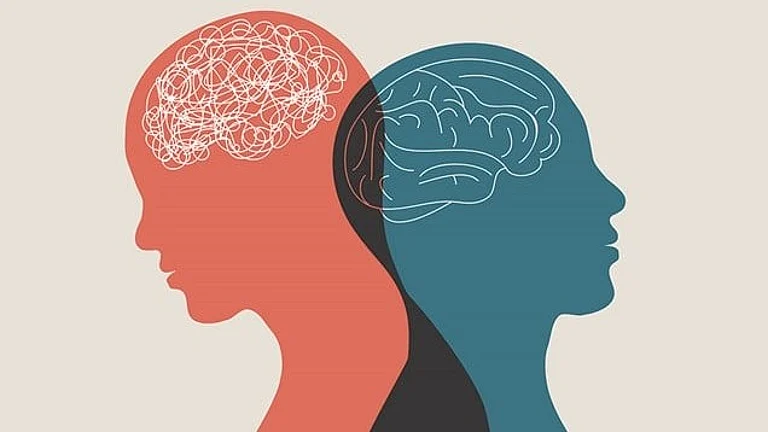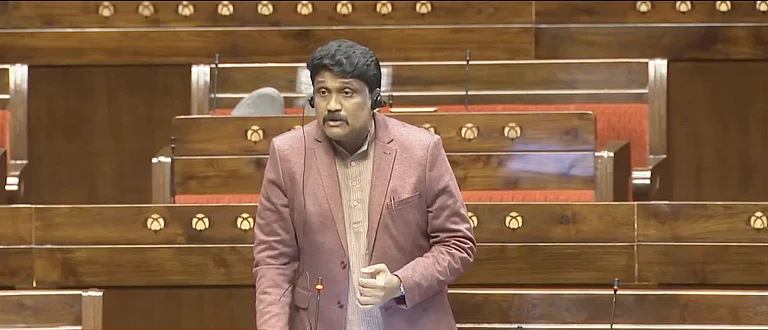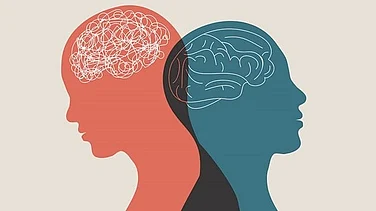
India should encourage employment of people with psychosocial disabilities.
The surviving systems are designed in a way to shut out the people with such disabilities.
There is need to reimagine work with diverse roles beyond the traditional definition of neoliberal productivity.
For years, I met Sundar unfailingly each month as he came to the outpatient clinic to refill his medication and have a chat. Each time we met, he would open with a statement about his work, sometimes scarce, sometimes good and sometimes new. Sundar often longed for the days he spent plucking jasmine flowers; he missed the texture, the soft scent, and most of all, the ability to sometimes show up for work and sometimes not, and yet not be judged or fear losing the opportunity to make a living—for his family of four. Since his adolescence, he had moved through the agricultural fields in a village, finding rhythm in work that may have demanded effort but not regularity. Then industrialisation and gated community developments swept through the entire taluk. The jasmine disappeared beneath the concrete, and Sundar found himself thrust overnight into a labour market that demanded unforgiving mechanical reliability, a near-constant presence and unchanging output expectations. Sundar lives with a diagnosis of schizophrenia. When I last met him, he was desperately trying to convince a construction site supervisor to let him work.
His story typifies the injustice embedded in how we understand work. In contemporary India’s transformed economic landscape, displacement of traditional livelihoods exacerbates systemic exclusion of people whose minds work differently, whose labour is devalued by the narrow metrics of productivity. The question of employment justice for people with psychosocial disabilities is not ‘can they do the work’, but how we can dismantle oppressive notions of work and reimagine it to include those with differences.
The years I spent speaking to people who accessed care in community mental health settings, I witnessed stories that defied every stereotype that contaminates society’s perspectives about people navigating serious mental health conditions. I met Desappan, who was diagnosed with schizophrenia, with catatonia. Left in chains at a dargah by his mother and wife, he recalls breaking free and walking for days, kilometre by kilometre, for 250 km by foot back home to a fishing village that was right outside a metropolitan city. I recall him saying that he wasn’t wandering aimlessly, even in the fog of his symptoms; he was walking back home. People often assume that an acute crisis is an unremitting disconnection from reality, but as with everything that is human, fluctuations are characteristic of mental health crises as well. The same applies to work, and not just for only those with psychosocial disabilities.
The paradox at the intersection of work and mental health is that our world today exemplifies working conditions that undermine people’s psychological wellbeing, while simultaneously excluding millions of people with psychosocial disabilities from occupational roles. In perpetrating this exclusion, we impoverish our workplaces and society of their perspectives and creativity born from living with different cognitive realities and surviving systems designed to shut them out.
These systems include constraints imposed by what care looks like for many people with serious mental health conditions. When Farida returned home after a brief spell of homelessness, she restarted her tailoring practice. Every day, she would cut reams of cloth to stitch blouses. But work that seemed like a breeze earlier became much harder with her medication, with difficulty waking up and a fog that shadowed her thinking. Though she tried working with her psychiatrist to readjust her medication, it was often a choice between resurfacing distressing symptoms and being able to continue as she was. More often than not, work interventions in mental health adopt a deficit-based tenor, where people are assigned to ‘sheltered workshops’ and ‘vocational training’, paid ‘incentives’ not remuneration, learning, relearning and performing skills disconnected from their history or community livelihoods, and subjected to assessments to determine when they are ready for the world.
Desappan never experienced what one would clinically say is a significant remission from his symptoms. He worked for many years as a security guard, supporting his family, including educating and raising his children to adulthood. He remained angry, until what would be our last meeting, over the treatment meted out to him by his family, despite him doing all he could for them. Rage induced by stigmatised gaze, of continually reduced expectations and invalidated labour.
To reimagine work is to also value variegated roles that people may play, to not demand that labour be that which produces, which brings a salary in the modern industrial complex, to break free from neoliberal concepts of productivity that reduce human worth to consistent output. When Selvi moved into a shared home with others like her after years of living in a psychiatric institution, the world had changed and she was too old to get back to her former life. She became the house elder and the neighbourhood grandmother, with children dropping by in the evenings for stories and poetry.
To dream of employment, justice for people with psychosocial disabilities is to recognise that this is about systemic transformation rather than charitable accommodation. The current economic landscape is riddled with job insecurity, wage stagnation and the erosion of collective bargaining. Contemporary employment offers neither predictability nor unconditional social connection. How then can we move towards an economy that works for all kinds of minds, one that recognises care, creativity, and community-building as valuable contributions regardless of their market utility?
Poet and writer Leah Lakshmi Piepzna-Samarasinha writes, “It’s not about self-care—it’s about collective care. Collective care means shifting our organisations to be ones where people feel fine if they get sick, cry, have needs, start late because the bus broke down, move slower, ones where there’s food at meetings, people work from home—and these aren’t things we apologise for.”
My colleagues at The Banyan along with the Chennai Mission embarked on an employment initiative two years ago, as a collective project led by people with disabilities themselves, rather than a service delivered to passive recipients. It began with extensive discussions with people who had attempted employment before; three systemic barriers emerged, none of them to do with individual capacity. The first issue was of compensation: not charity, not incentives, but fair, fixed, market-competitive remuneration that recognised their labour as legitimate work. The second was transport to get to work, to not have to navigate hostile, overcrowded, overstimulating, unpredictable urban transport that drained half their energies. The third—workplace support—is the presence of a person who could coach the workplace to meet their daily needs and who could work with them to build confidence with patience by allowing them to get familiar with work at their own pace. Since inception, 50 people have participated in this initiative that runs canteens or cafes across four locations in Chennai. Through the knowledge acquired from the collective lived experience of psychosocial disability, the initiative has now learned that when someone says they can’t do a job, the system needs to interrogate why they are saying this and how the workplace can be fixed to address these needs.
If we are to perhaps shift the needle towards inclusion in employment for people with psychosocial disabilities, it needs to begin with the recognition that economic spaces and workplaces need to bend to meet people’s rhythms—not demand that they break against institutional rigidity—and become systems designed for diverse minds.
The jasmine fields may be long gone, yet Sundar’s knowledge of their cadence remains. Are we wise enough as a society to value it?
(With inputs from Preetha Krishnadas, Harilal Pillai, G. V. Arun and Swaathi Balasubramanian)
A shorter, edited version of this appears in print
Lakshmi Narasimhan is a Mental health researcher and practitioner with a PhD from Vrije Universiteit, Amsterdam, currently Director, Banyan Academy of Leadership in Mental Health and Director—Research, The Banyan
In its August 21 issue, Every Day I Pray For Love, Outlook collaborated with The Banyan India to take a hard look at the community and care provided to those with mental health disorders in India. From the inmates in mental health facilities across India—Ranchi to Lucknow—to the mental health impact of conflict journalism, to the chronic stress caused by the caste system, our reporters and columnists shed light on and questioned the stigma weighing down the vulnerable communities where mental health disorders are prevalent. This copy appeared in print as 'Work For Diverse Minds'.



























